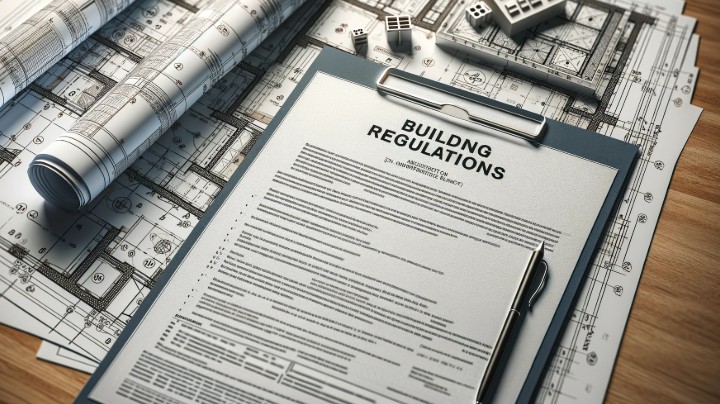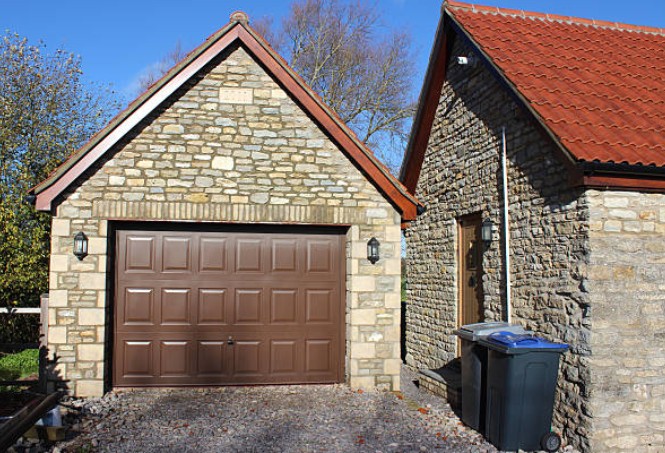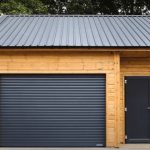Are you considering converting your garage into a liveable space, like a home office, extra bedroom, or rental unit? Garage conversions have become increasingly popular in the UK as a cost-effective way to add value and space to your home. However, before you start, it’s important to ask: Do you need planning permission to convert a garage?
In this guide, we’ll break down everything you need to know about planning permission, permitted development rights (PDR), and building regulations for your garage conversion in 2025.
What is a Garage Conversion?
A garage conversion involves transforming your garage into a usable living space. Popular conversions include:
- Home office: Perfect for remote work.
- Spare room: for guests or a growing family.
- Self-contained annexe: To generate rental income.
- Gym, hobby room, or studio: Ideal for personal spaces.
It’s a quick and cost-effective way to expand your home without the need for a full extension.
Do You Need Planning Permission to Convert a Garage?

In many cases, you don’t need planning permission to convert your garage, thanks to Permitted Development Rights (PDR). However, there are exceptions.
When You Likely Don’t Need Planning Permission
- Internal changes only
If you’re only altering the inside of the garage, like adding insulation or partitions, no permission is usually needed. - No external alterations
If the exterior of the garage remains unchanged, planning permission is generally not required. - No separate dwelling
If you aren’t creating a separate living unit with its own kitchen or bathroom, you don’t need permission. - Your property is not in a restricted area.
If your home is not located in a conservation area or a national park, you may not need planning permission.
When You Need Planning Permission
- Changing the garage’s external appearance
If you plan to add windows, change the roof, or make other significant external alterations, you’ll need planning permission. - Converting a detached garage into a separate unit
If your conversion includes creating a self-contained living space with a kitchen and bathroom, planning permission will be required. - Living in a restricted area
If your property is in a conservation area or a national park, stricter planning controls apply, meaning you will likely need planning permission. - Converting a listed building
If your property is a listed building, you will need listed building consent before making any alterations.
Table: When You Need and Don’t Need Planning Permission for Garage Conversion
| Scenario | Planning Permission Needed? |
| Internal changes to the garage (no external alterations) | No |
| Adding new windows, doors, or altering the roof | Yes |
| Creating a self-contained dwelling (kitchen + bathroom) | Yes |
| Garage in a conservation area or national park | Yes |
| Listed building | Yes |
What are Permitted Development Rights (PDR)?
Permitted Development Rights (PDR) allow homeowners to carry out certain types of building work without the need for planning permission. These rights apply in England, Wales, and Scotland and typically cover:
- Internal alterations
- Modifications that leave the outward look unchanged.
- Conversions that don’t create a separate dwelling
If your conversion meets these criteria, you can usually proceed without needing planning permission. However, it’s still wise to apply for a Lawful Development Certificate (LDC), which confirms that your project is legally compliant.
Do You Need Building Regulations Approval?

Yes, building regulations will always apply to a garage conversion, whether or not planning permission is required. These regulations ensure the new space is safe, secure, and energy-efficient.
Key areas covered by building regulations include:
- Structural integrity: Ensuring walls, roofs, and foundations are sound.
- Thermal insulation: Ensuring the space is energy-efficient.
- Ventilation: Providing adequate airflow to avoid damp or condensation.
- Fire safety: Installing smoke alarms, fire doors, and escape routes.
- All electrical work must adhere to safety standards.
Building regulations approval is mandatory, and you can either apply through your local authority or hire an approved inspector.
Financial Considerations: Cost of a Garage Conversion
While converting a garage is generally cheaper than building an extension, the cost can still vary depending on the complexity of the project. Average costs in the UK range from £5,000 to £25,000, with the final price depending on the size, design, and whether you need planning permission.
If you plan to rent out the converted space, the cost can be recouped over time, adding value to your property.
Conclusion
Transforming a garage into usable space can greatly improve your home’s functionality and boost its market value. In most cases, you don’t need planning permission, especially if you’re only making internal changes and not altering the exterior. However, if you plan to make external alterations, create a separate living unit, or live in a restricted area, planning permission will likely be required.
Before starting your project, ensure you comply with both planning and building regulations to avoid costly delays or complications. If you’re unsure whether you need permission, it’s always best to check with your local planning authority or apply for a Lawful Development Certificate.
FAQs
Do I need planning permission to convert my garage into a home office?
Generally, no, as long as you are not altering the external appearance of the garage or creating a separate dwelling.
What is a Lawful Development Certificate (LDC)?
An LDC is a certificate issued by your local council that confirms your garage conversion falls within Permitted Development Rights, meaning no planning permission is needed.
Will converting my garage add value to my property?
Yes, converting your garage into a livable space can add significant value to your home, especially if you create an additional bedroom or rental unit.






